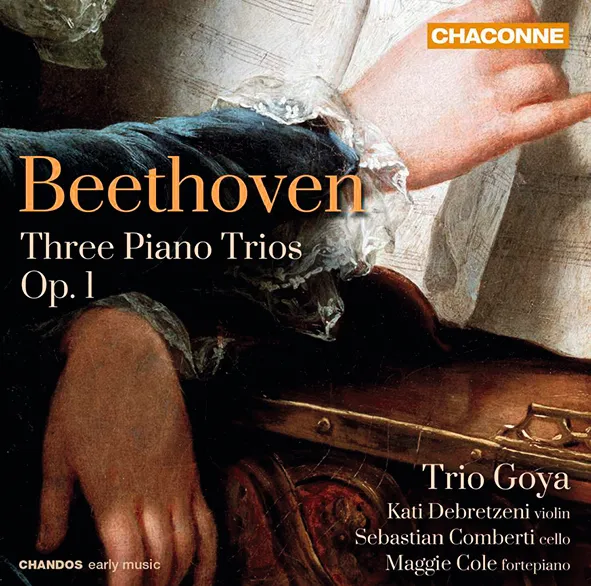
Beethoven Piano Trios Nos 1-3, Op. 1 Trio Goya Chandos CHAN 0822(2) 96:07 mins (2 discs)
As William Drabkin observes in his liner note, these piano trios, written in Beethoven’s early twenties, mark the real beginning of his career, and their grouping reflects one of his favourite strategies: by issuing works in threes he tripled the effectiveness with which he hit his public. And as with the early solo piano works, their slow movements – particularly that of the G major trio – prefigure the expansive and exploratory slow movements of the symphonic works to come. There are other pre-echoes: the piano figurations in the theme of the second movement of Trio No. 3 resurface nearly thirty years later in the second of the Op. 119 Bagatelles.
These trios’ first performance may have been given in the home of their dedicatee Prince Karl Lichnowsky, but they reflect Beethoven’s determination to escape from the conventions of salon music: the flattened seventh in the third bar of the first trio announces this, as does the defiantly heroic mood of the opening of the C minor. It may take some listeners a few minutes to acclimatise to the fortepiano in this period-instrument performance, but Trio Goya’s sound world has a satisfyingly natural balance. And it’s good to hear Kati Debretzeni – more often to be found leading period-instrument ensembles – in a chamber context: the refined grace of her playing finds its foil in Sebastian Comberti’s luminous handling of the cello part with which Beethoven was beginning his emancipation of that instrument; Maggie Cole grounds the music with wit and authority. Each movement is meticulously shaped: the closing stages of the C minor are beautifully done, as the sound gradually fades away into the distance.
Michael Church